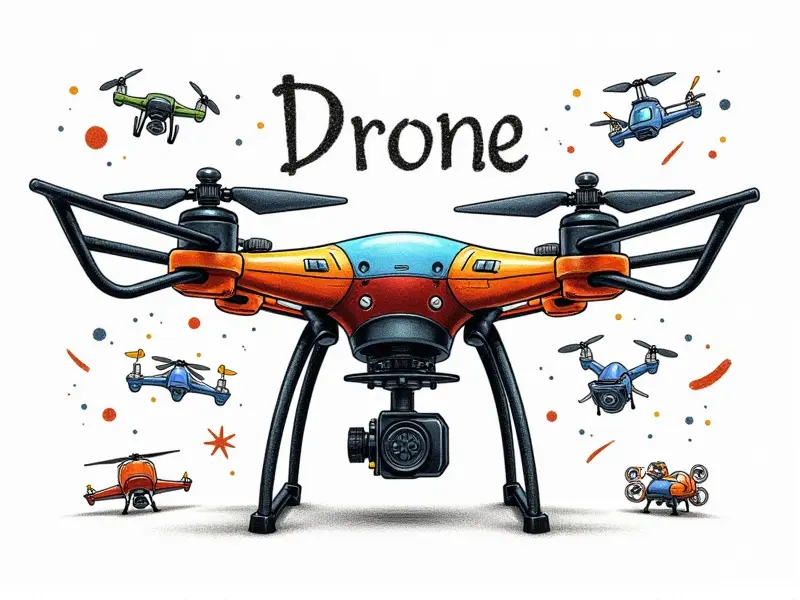Is FPV legal for racing?

Is FPV Racing Legal in Your Area?
First-person view (FPV) racing has gained immense popularity among drone enthusiasts, but one of the most pressing questions is whether it's legal to race these high-speed drones. The legality of FPV racing varies widely depending on your location and local regulations. This article aims to provide a comprehensive guide to understanding the legal landscape of FPV racing.
Understanding the Laws Around FPV Racing
The laws surrounding FPV racing are complex and can vary significantly from one jurisdiction to another. Before you dive into the exhilarating world of FPV drone racing, it's crucial to understand the specific regulations in your area. This includes understanding local airspace restrictions, noise ordinances, and any other relevant rules.
Can You Race FPV Drones Legally?
The legality of FPV racing depends on several factors, including the type of drone you're using, where you plan to race, and whether there are organized events in your area. In many places, racing drones in public spaces or without proper permits can lead to legal issues.
Types of Drones
- Commercial Use: If you're using FPV drones for commercial purposes, such as filming or surveying, additional regulations may apply. You'll need to obtain the necessary licenses and adhere to specific guidelines set by aviation authorities.
- Hobbyist Use: For hobbyists, the rules are generally less stringent but still important to follow. Ensure your drone meets safety standards and doesn't interfere with other airspace users.
FPV Racing: Know Before You Go
Before you start racing FPV drones, there are several key considerations:
Airspace Regulations
Most countries have strict regulations regarding drone usage in controlled airspace. Check with your local aviation authority to understand the rules and obtain any necessary permits.
Noise Ordinances
Racing drones can be quite loud, so it's important to check if there are noise restrictions in place where you plan to race. Violating these regulations could result in fines or other penalties.
Legalities of FPV Racing in the USA
In the United States, the Federal Aviation Administration (FAA) regulates drone usage through a set of rules known as Part 107 for commercial drones and recreational guidelines for hobbyists. Here are some key points:
- Registration: All drones over 0.55 pounds must be registered with the FAA.
- Airspace Restrictions: Drones cannot fly higher than 400 feet and must stay within visual line of sight.
- No-Fly Zones: Avoid flying near airports, military bases, and other restricted areas.
FPV Racing Regulations: What You Need to Know
To ensure you're racing legally, familiarize yourself with the following regulations:
Organized Events
Participating in organized FPV racing events can often be more straightforward. These events typically have their own set of rules and may require participants to obtain specific permits.
Safety Standards
Maintaining safety standards is crucial, not only for the legality but also for your well-being and that of others around you. Always use approved equipment and follow best practices.
Is FPV Drone Racing Illegal Where You Live?
The answer to this question depends on where you live and the specific regulations in place. In some areas, racing drones may be prohibited due to noise restrictions or airspace limitations. It's essential to research local laws thoroughly before engaging in any FPV racing activities.
Understanding the Legalities of FPV Racing
To avoid legal issues, it’s important to understand the nuances of FPV racing regulations:
Local Ordinances
Many cities and towns have specific ordinances regarding drone usage. Check with your local government for any restrictions or permits required.
State Regulations
In addition to federal rules, states may have their own set of regulations governing FPV racing. Make sure you're aware of these state-specific laws.
The Legal Landscape of FPV Racing
The legal landscape for FPV racing is continually evolving as the popularity of this activity grows. Staying informed about changes in regulations and participating in organized events can help ensure a safe and enjoyable experience.
Can I Legally Race My FPV Drone?
To determine if you can legally race your FPV drone, consider the following:
- Check Local Regulations: Review the laws in your area to ensure compliance with all relevant rules.
- Participate in Organized Events: Joining organized races can provide a safer and more regulated environment for FPV racing.
- Maintain Safety Standards: Always adhere to safety guidelines to prevent accidents and legal issues.
Is FPV Drone Racing Allowed Where You Live?
The legality of FPV drone racing varies by location. To ensure you're in compliance, consult local aviation authorities and city ordinances before engaging in any racing activities.
Conclusion
FPV racing is an exciting hobby that requires careful consideration of legal regulations to avoid potential issues. By understanding the specific rules and guidelines for your area, you can enjoy this thrilling activity safely and legally. Always stay informed about changes in local laws and participate in organized events when possible.

